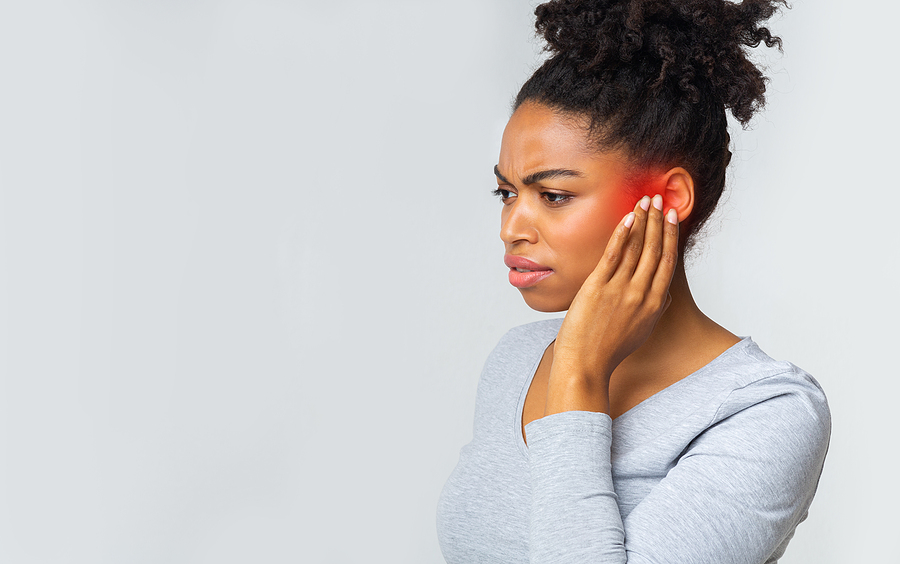Hearing aids are crucial for individuals experiencing hearing loss, helping them engage with the world around them. However, like any other device that comes into contact with the body, hearing aids require regular cleaning and maintenance to ensure they function properly and safely. Dirty hearing aids can harbor bacteria and other pathogens, leading to ear infections and other health issues. Understanding how dirty hearing aids can cause infection and learning how to maintain them can protect your hearing health.
Why Clean Hearing Aids Matter
Hearing aids sit inside or behind the ear for many hours each day, making them susceptible to collecting earwax, moisture, and debris. If not cleaned regularly, these contaminants can create an environment for bacteria and fungi to thrive. This can lead to ear infections, discomfort, and even damage to the hearing aids themselves. Maintaining clean hearing aids ensures they work efficiently and helps prevent potential health problems.
Bacterial and Fungal Growth
Earwax and moisture trapped in hearing aids provide an ideal environment for bacteria and fungi to grow. When these microorganisms multiply, they can transfer to the ear canal, causing infections. Common symptoms of an ear infection include pain, itching, redness, swelling, and discharge.
Ear Canal Irritation
Debris and buildup on hearing aids can cause irritation in the ear canal. This irritation can lead to small cuts or abrasions, providing an entry point for bacteria and fungi. Even minor injuries in the ear canal can become infected if not treated promptly.
Allergic Reactions
Some individuals may experience allergic reactions to the materials in their hearing aids, especially if those materials are not kept clean. Dirt and contaminants on the hearing aids can exacerbate these reactions, leading to inflammation and an increased risk of infection.
Blockage of Ventilation
Modern hearing aids are designed with small vents to allow air to circulate in the ear canal. This ventilation helps prevent moisture buildup and maintains ear health. If these vents become blocked with earwax or debris, it can create a moist environment conducive to infections.
Signs of Infection
It’s essential to recognize the signs of an ear infection to seek prompt treatment. Common symptoms include:
- Pain or discomfort in the ear
- Redness or swelling in the ear canal
- Itching or irritation
- Discharge from the ear
- Hearing loss or a feeling of fullness in the ear
- Fever in severe cases
If you experience any of these symptoms, it’s crucial to remove your hearing aids and consult a healthcare professional for a hearing health exam.
Preventing Infections Through Proper Maintenance
Regular cleaning and proper maintenance of hearing aids are vital to preventing infections. Here are some steps to keep your hearing aids clean and safe:
Wipe your hearing aids daily with a soft, dry cloth to remove earwax, moisture, and debris. Use a brush or wax pick provided in a hearing aid cleaning kit to clean hard-to-reach areas, such as vents and sound openings.
Moisture can damage hearing aids and promote bacterial growth. Remove your hearing aids before showering, swimming, or using hair products. Store your hearing aids in a dry, safe place when not in use, and consider using a hearing aid dehumidifier.
Regular Checkups
Schedule regular hearing health exams with your provider. These checkups allow for professional cleaning of your hearing aids and ensure they are functioning correctly. Your provider can also inspect your ears for signs of infection or other issues.
Store your hearing aids in their protective case when not in use. This helps prevent them from getting dirty or damaged. Keep the case in a cool, dry place away from direct sunlight and heat sources.
Ear Hygiene
Maintaining good ear hygiene is essential for preventing infections. Clean your ears regularly and avoid using cotton swabs, which can push earwax deeper into the ear canal. Instead, use ear drops or visit a healthcare professional for ear cleaning.
Always handle your hearing aids with clean hands. Dirty hands can transfer bacteria and other contaminants to the hearing aids, increasing the risk of infection.
What to Do if an Infection Occurs
If you suspect an ear infection, remove your hearing aids immediately and consult a healthcare professional. Do not use the hearing aids again until the infection has cleared and your doctor gives you the all-clear. Your provider can help ensure your hearing aids are thoroughly cleaned and safe to use again.
Dirty hearing aids can pose significant risks to your ear health, potentially leading to painful and disruptive infections. By maintaining a regular cleaning routine and taking preventative measures, you can protect your ears and ensure your hearing aids function effectively. Remember, regular hearing health exams are essential for early detection and treatment of any issues, keeping your hearing and overall well-being in top condition.


